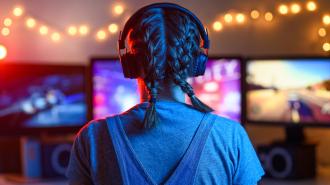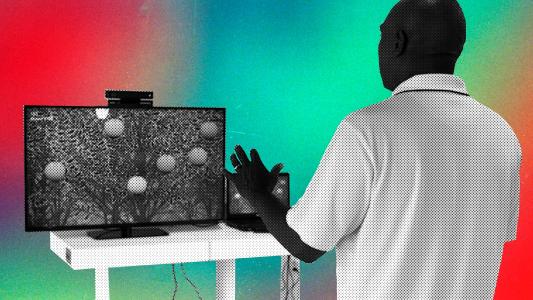A new startup hopes to bring video games to the forefront of mental health care by developing games that are as therapeutic as they are engaging. They’re also looking at how to make it easier for developers to test the medical benefits of existing games.
Therapeutic games: Every year, 26% of American adults experience a mental health disorder, such as anxiety, depression, or attention deficit hyperactivity disorder (ADHD). This can affect their ability to work, have relationships, and enjoy a high quality of life.
“Soon, some of the best video games in the world will be recognized for what they are: powerful medicine.”
Mike Wilson
Therapy and medication are well-known treatment options for mental health disorders, but some people report that video games can help provide relief, too, and some studies have backed up these claims.
If a game developer can prove these health benefits, it can get permission from the FDA to market its game as therapy. In 2020, for example, the FDA gave Akili Interactive permission to market “EndeavorRx” for improving ADHD symptoms.
The challenge: Without FDA approval, game developers typically can’t claim their games can help treat any specific diseases — that means people who need it might never know about a game’s potential medical benefits.
Securing FDA permission to market a game as therapy can be an expensive, time-consuming, and complicated process.
The FDA greenlight also adds a level of credibility to a game that can make doctors more willing to recommend it and patients more willing to try it. It opens the door for patients to work with health insurance companies to get the cost of a game covered, too.
The process for securing FDA permission can be expensive, time consuming, and complicated, though — the EndeavorRX team had to run five clinical studies involving more than 600 children — which will deter most developers from even trying.
The startup: DeepWell Digital Therapeutics is a newly launched gaming company designed to develop new games to treat mental health disorders, identify existing ones with health benefits, and then get them cleared as “medical devices” by the FDA.
The company’s co-founders are incredibly well-suited for this work. Mike Wilson is the co-founder of indie game publisher Devolver Digital, while Ryan Douglas is a medical device creator who has secured FDA approval for more than 25 devices in the past 15 years.
Looking ahead: Wilson and Douglas have assembled a team of more than 40 game developers, scientists, and medical researchers to help them, and they’re now working on building a mental health-focused game that they expect to release in 2023.
Developers of released or in-development games can also apply for partnership through DeepWell’s website. The company can then help developers go through the process of formalizing clinical studies and securing FDA approval for marketing their games.
“DeepWell is bringing entertainment and medical science together to build upon the proven fact that video games can be good for you … Soon, some of the best video games in the world will be recognized for what they are: powerful medicine,” Wilson said.
We’d love to hear from you! If you have a comment about this article or if you have a tip for a future Freethink story, please email us at [email protected].






